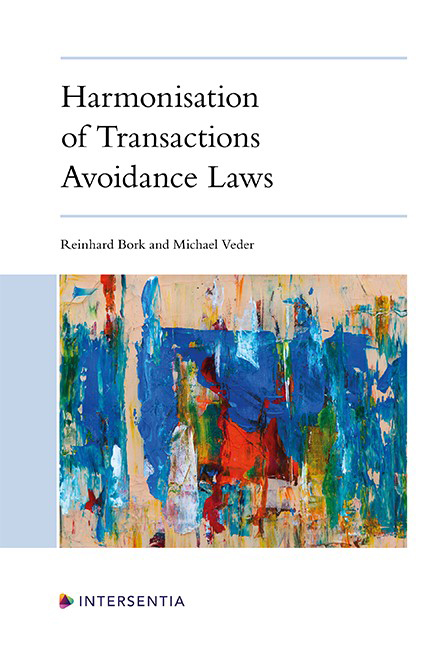Chapter 4 - Rules and Recommendations
Published online by Cambridge University Press: 26 May 2022
Summary
OVERVIEW
In the final – and crucial – chapter of this book we will develop and propose concrete provisions for a harmonised transactions avoidance law. Our intention is to present a proposal for an EU-wide regulatory framework which consists of an elaborated set of rules that should – or at least could – be implemented in all national insolvency and restructuring laws. For this purpose, we will address the issues identified in Chapter 3 which are relevant for a comprehensive and coherent avoidance law and which deserve due consideration in the present context. We will present a model chapter of an imaginary Insolvency Act and offer a complete set of norms which we consider to be a consistent approach to solving these issues. We will explain extensively how we came to our decisions and why we prefer certain regulatory proposals to other possible alternatives. However, this needs some more detailed explanation.
First, although we intend to present a complete set of norms necessary for a comprehensive and coherent transactions avoidance law, we do not intend to address each and every detail that could be addressed in this context. National laws have embosomed many peculiarities in their transactions avoidance laws which we will not take on board in this study. We rather aim at presenting a proposal for “minimum harmonisation”: it should be clear and certain – in particular from the perspective of Art. 16 EIR – under which conditions the most frequent and relevant transactions are challengeable after the opening of insolvency proceedings. For example, where a creditor who was aware of the debtor’s substantive insolvency has been paid immediately prior to the filing for insolvency proceedings, it should be certain for the Insolvency Practitioner that this payment can be challenged no matter whether the creditor is situated in the state where the proceedings have been opened and no matter whether the lex fori concursus or any other transactions avoidance law applies. The rules that we seek to develop in this proposal concern the transactions that as a minimum should be subject to avoidance because they are typical cases with relevance to the internal market.
- Type
- Chapter
- Information
- Harmonisation of Transactions Avoidance Laws , pp. 139 - 284Publisher: IntersentiaPrint publication year: 2022



